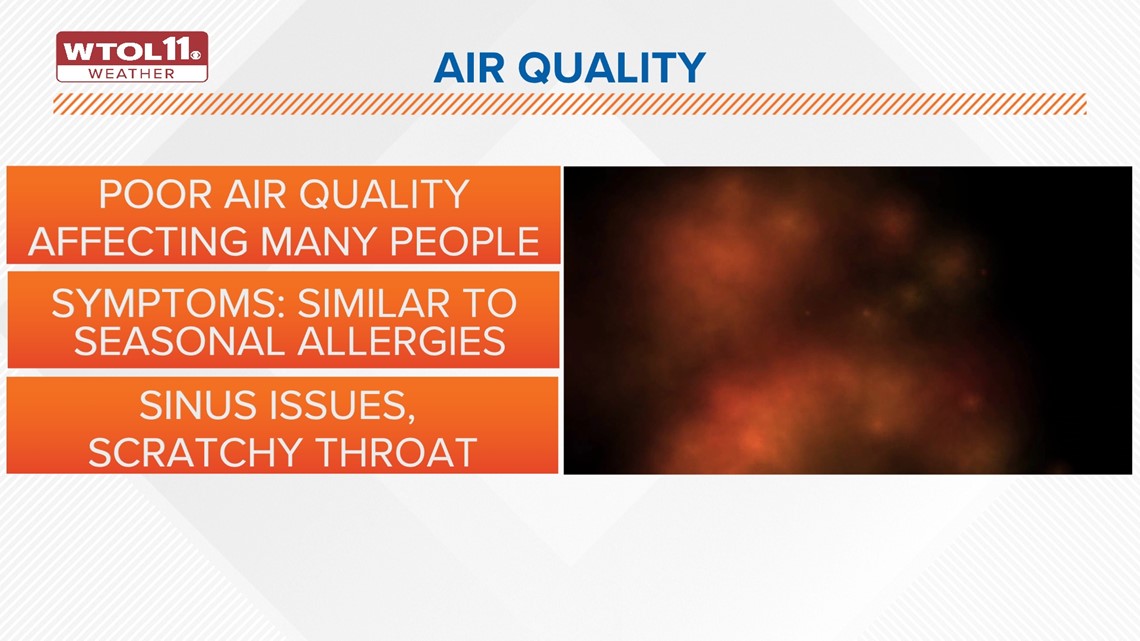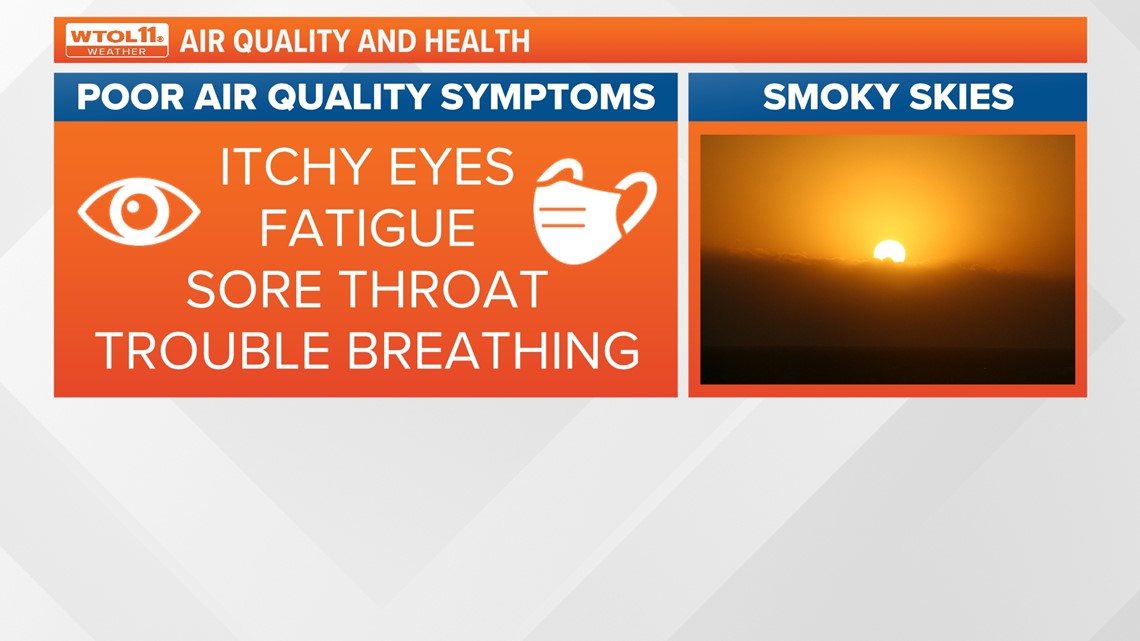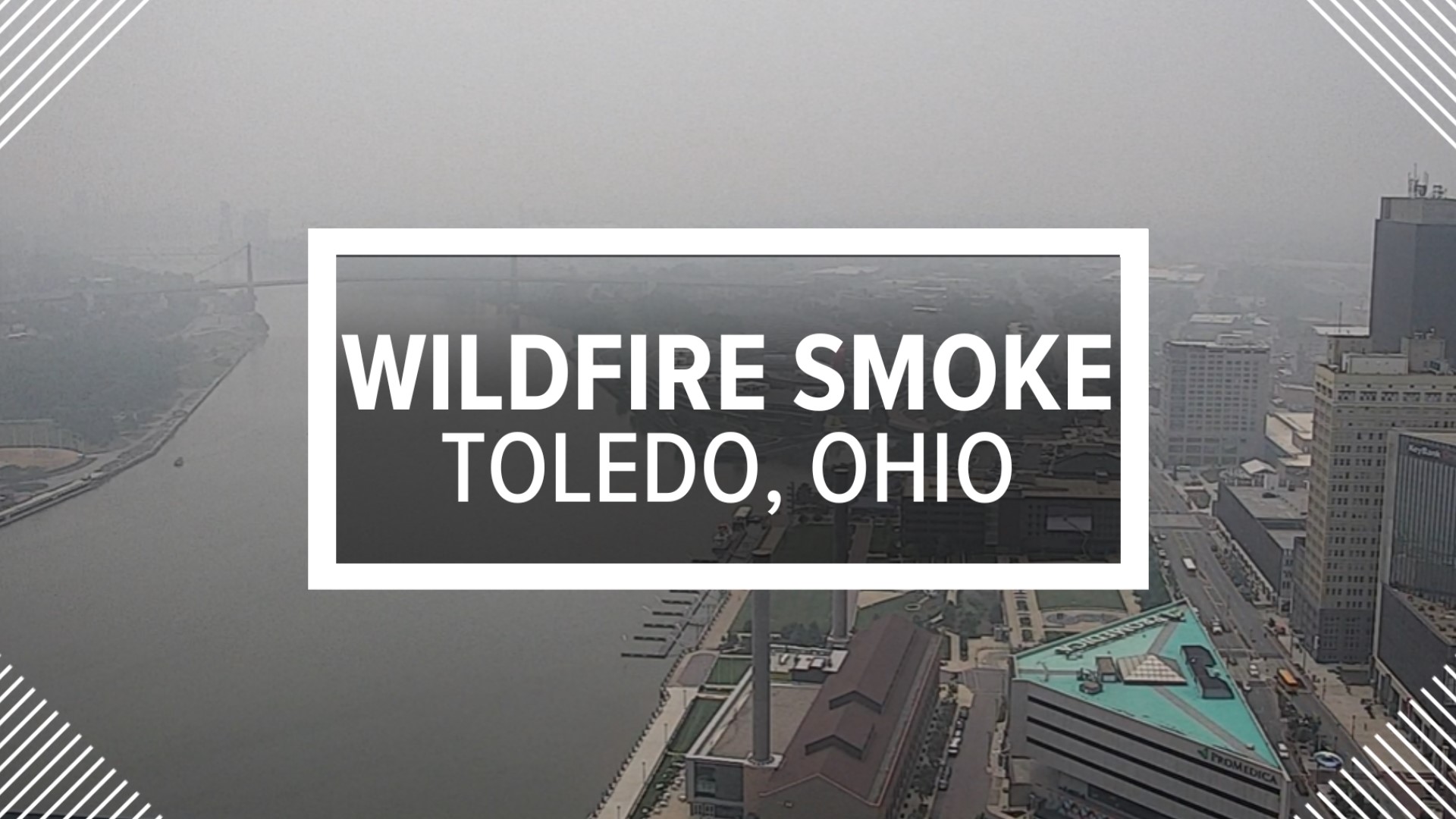TOLEDO, Ohio — Skies across the Midwest have been covered with smoke and haze for the last few days due to wildfires in Canada. When you woke up Wednesday and Thursday morning, you probably noticed limited visibility, a cherry-red sunrise and even a smell of smoke in the air.
By Friday morning, most will have seen a significant improvement in air quality, especially around northwest Ohio.
While wildfire smoke reaching our area is not uncommon during the summer, its proximity to northwest Ohio and southeast Michigan has caused fog-like haze, limiting visibility and causing health problems for some who are sensitive.
Current air quality
Toledo's air quality is considered "unhealthy" Friday night, according to the Air Quality Index tracked by AirNow. The area's Air Quality Index sits at 167 AQI as of Friday night.
The city of Toledo issued a news release Wednesday urging people to take precautions if they must be outside during unhealthy air quality:
"Today’s outdoor youth activities will still take place, but please take necessary precautions as the air quality continues to be very poor.
"Young people, older adults, and people with underlying health issues like asthma, heart disease or other respiratory conditions are most susceptible to symptoms resulting from exposure to the smoke. These symptoms include itchy or watery eyes, cough or shortness of breath, or sore throat.
"Limit your time outdoors and take precautions while outside. Avoid outdoor exercising and wear a mask if possible. Any mask will help reduce the amount of particulate matter inhaled, but an N95 mask is most effective."
AirNow is a tool that uses the AQI to determine current air quality levels across the county. It is updated throughout the day. You can see a detailed map here.
AQI is classified in the following ranges:
- 0 - 50: Good
- 51 - 100: Moderate
- 101 - 150: Unhealthy for Sensitive Groups
- 151 - 200: Unhealthy
- 201 - 300: Very Unhealthy
- 301 - 500: Hazardous
Air quality and your health
Like pollen, smoke can act as an irritant to those who are sensitive to it. Poor air quality can have affects similar to seasonal allergies in some people, including sinus issues and a sore throat.
In a statement issued Wednesday, the Ohio Department of Health encouraged residents to take precautions ahead of unhealthy air quality conditions.
"It is important to take poor air quality seriously, as exposure to smoke can cause health problems," Dr. Vanderhoff, director of ODH said. "Certain groups of people are at higher risk, such as those with chronic heart or lung disease, children, the elderly, and pregnant women. Please take precautions until these conditions improve."
Vanderhoff also encouraged Ohioans to monitor children closely and to limit outdoor activities while air quality is poor.


At current air quality levels, AirNow recommends people with heart or lung disease, older adults, children and teens avoid strenuous outdoor activities, keep outdoor activities short and consider moving physical activities indoors or rescheduling them.
AirNow also recommends all other groups choose less strenuous activities (like walking instead of running), shorten the amount of time you are active outdoors and be active outdoors when air quality is better.
People in sensitive groups due to medical conditions, exposure concerns or innate susceptibility may experience health effects during outdoor activities. Children, seniors and people with asthma or COPD should limited prolonged strenuous outdoor activity.


Hazards and alerts
As of 7 a.m. Friday, all air quality alerts in northwest Ohio have expired. However, some air quality alerts remain in southeast Michigan.
Air quality alerts were also issued in several surrounding regions, including the entire states of Pennsylvania, West Virginia and New York, among other states battling poor air quality Friday.
RELATED

